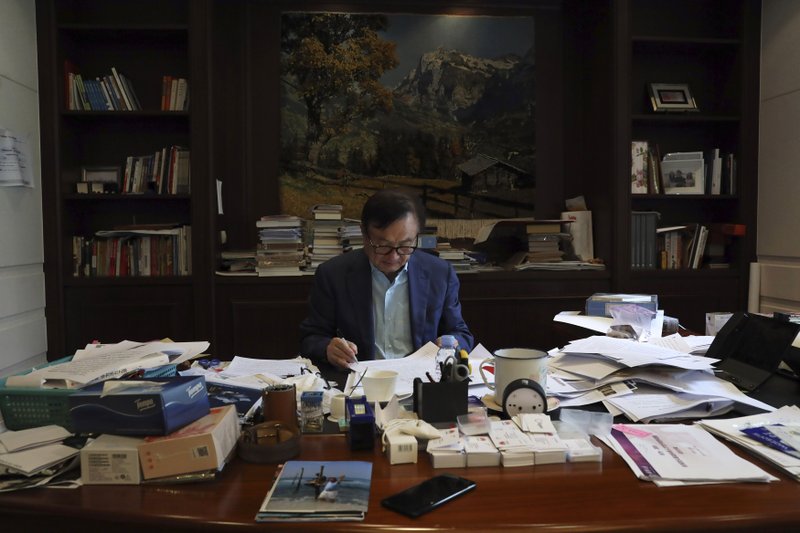SHENZHEN, China -- For decades, Huawei's founder stayed out of sight as it grew to become the biggest maker of network gear for phone carriers and passed Apple as the No. 2 smartphone brand.
Now, Ren Zhengfei is shedding that anonymity as China's first global tech brand mobilizes to fight back against U.S. sanctions and warnings Huawei Technologies Ltd. is a security risk.
The entrepreneur at the center of the Trump administration's battle with Beijing over technology is a survivor of competition that drove Western rivals out of the market.
The 75-year-old former army engineer who worked his way out of childhood poverty sees American pressure as just the latest of the tests that have hardened him and his company.
"For three decades, Huawei has been suffering and no joy," Ren said in an interview. "The pain of each episode is different."
This episode has a personal dimension: Ren's daughter, Huawei's chief financial officer, is under arrest in Canada on U.S. charges she helped to violate sanctions against Iran.
The escalating clash with Washington has transformed Ren from an admired but rarely seen businessman worth an estimated $3 billion into one of China's most prominent figures.
He belongs to the generation of entrepreneurs who founded communist-era China's first private companies in the 1980s. They navigated a shifting, state-dominated landscape, overcoming shortages of money and technology to create industries that are expanding abroad.
Ren started Huawei in 1987 after his military post was eliminated.
Huawei is a star in industries the ruling Communist Party is promoting but a target for complaints those plans are based on stealing or pressuring foreign companies to hand over business secrets.
Despite his success, Ren talks like a struggling rookie, worrying aloud that employees might get too comfortable.
Ren writes letters urging employees to "prepare for the worst," said Nicole Peng of Canalys, an industry research firm.
As for "whether his character can help the company to survive," said Peng, "I'm sure it will. It will survive. Like he said, they are prepared for it. They know there is always difficulty."
Born in 1944, Ren was raised by a schoolteacher who he said fed seven children on a monthly wage of about $6.
When Ren was a teenager, the ruling party embarked on the Great Leap Forward, a disastrous campaign to become an industrial power overnight. At least 30 million people died in the 1959-61 famine that followed.
Ren's mother declared no one would die and divided each meal into nine portions, one for each family member, said Tian Tao, co-author of The Huawei Story.
"His mother's 'meal system' had a big impact on him," said Tian.
Following that ethos, Huawei said it is owned by the Chinese citizens who make up half its workforce of 180,000. Ren's ownership has declined to 1.14% as more shares are distributed to employees.
Ren joined the army in the 1960s and was sent to the northeast to build a textile factory. He said he slept outdoors in freezing weather and ate noodles and pickled radish.
Ren says he has tried to ensure Huawei's long-term survival through a system of shared decision-making. Still, he is known as a forceful, even autocratic, decision-maker.
Huawei, along with Nokia Corp. and LM Ericsson, leads in fifth-generation telecom technology. It is meant to upgrade and expand networks to support self-driving cars and other futuristic applications. But that increased reach makes 5G politically sensitive.
The company's U.S. market vanished after a congressional panel declared Huawei a security risk.
Despite that, sales tripled as Huawei made inroads into Europe, Asia and Africa. Sales last year rose almost 20 percent to $105 billion.
Business on 11/09/2019
